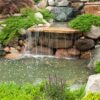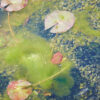Maintenance for Natural Swimming Pools. If you’re looking for ways to beautify your humble abode with a touch of nature, natural swimming pools can be a great addition. Natural swimming pools can also provide you with a healthy recreational time while allowing you to indulge in nature’s delight at the same time.
Natural swimming pools can be an aesthetic addition to your property, but like a traditional swimming pool, a natural one also calls for maintenance on your part. Though comparatively much more manageable, there’s still a need to maintain your natural swimming pool every now and then.
Whether you like it or not, you must invest your time and efforts when it comes to caring for your natural pool. If you don’t frequently take out the time to clean and maintain your natural swimming pool, the chances are that, in the long run, problems may worsen. This means additional bills out of your pocket, and you don’t want that.
What are natural swimming pools?
A natural pool is essentially a swimming pool with a kiss of nature. Natural swimming pools might be man-made, sure, but they definitely bag almost all the benefits and pleasures of a natural pond that you might find in a jungle.
Unlike conventional swimming pools, natural swimming pools don’t rely on harmful chemicals like chlorine to clean and disinfect themselves. In fact, natural swimming pools use their plants to do the cleaning grunt work for them. Natural swimming pools usually have two zones in them – the swimming zone and the regeneration zone.
The regeneration zone is where you will find the ecosystem and plants of the naturals swimming that are responsible for cleaning them while adding a natural touch to your pool simultaneously. The swimming zone’s the regions where you can swim without a care in the world.
Swimming pool maintenance – how do natural swimming pools clean themselves?
Chlorine sanitizes traditional pools by destroying almost everything in them (except swimmers). Natural pools are sometimes referred to as ‘alive’ since they are actually brimming with life. Apart from plants, the water is teeming with beneficial bacteria and small animals known as zooplankton. All of these things help to clean the water and keep algae at bay.
Algae needs nutrients to flourish. In natural pools, bacteria, plants, and zooplankton consume these nutrients, leaving nothing for algae to eat. The zooplankton also eradicates algal cells and diseases, which helps to keep them in check.
How do natural swimming pools work?
Natural pools often feature two zones: one for swimming and one for water purification, commonly referred to as the ‘regeneration zone’. These zones may share the space fifty-fifty, depending on the pool. However, the swimming area may consume up to 70% of the entire region.
The regeneration zone is generally densely vegetated, which helps to maintain the water clean and healthy. Like a regular swimming pool, a natural swimming pool employs aquatic plants and flora to filter away waste in the same way that a filtration system does.
Making use of nature’s self-cleaning qualities has its advantages, but it’s not without its drawbacks. Natural swimming pools must generally maintain a certain pH level in order for the plants to remain healthy and perform their functions in cleaning the pool.
You’ll also note that natural swimming pools are often bigger than conventional pools. This has to do not only with dividing the space into two zones but also with preventing algal problems.
Even if the pH level is checked on a semi-regular basis and any possible algae development is monitored, many homeowners find that natural swimming pools require less care and perform well in their backyard. Not to forget, the lesser maintenance costs as compared to traditional pools.
Natural Swimming Pool Maintenance – All you need to know about maintenance for natural swimming pools
To put it in a nutshell, natural swimming pools are much easier to maintain and clean than traditional swimming pools. This is mainly because of their self-cleaning mechanism that is made possible through the regeneration zones you’ll find in natural swimming pools.
However, lesser maintenance does not mean ANY maintenance – there’s still room for maintenance even with these heavenly, self-cleaning natural pools.
In traditional pools, you’ll find that chemicals like chlorine and potassium manganate are used to purify the water. Also, traditional swimming pools require frequent water tests and water vacuuming to make the water fit for swimming.
It’s totally different when it comes to natural swimming pools. Natural swimming pools have a built-in biological filtration system in them to do the hard work without you having to do much.
Keeping a watch on algae growth
Small natural swimming pools can also serve as a permanent home for algae. Algae may alter the quality of your water, and some varieties, such as blue-green algae, can be dangerous if your skin is exposed to it for an extended period of time. To abate the danger of an algal problem, it’s generally suggested that your natural pool be at least 45 square meters in size.
Some types (and colors) of algae are easier to get rid of than others, depending on the kind (and color) of algae in your pool. Finally, if you can prevent an algae problem from arising in the first place, you will be saving yourself a lot of hassle in the long run.
Your first natural swimming pool maintenance call
Once you’ve built a natural swimming pool on your property, your first swimming pool maintenance call comes when you first make your natural swimming pool functional.
As you turn on your natural swimming pool’s mechanism, you activate its plumbing systems, and the water starts gushing in. The water initiates its circulation through the biological filter that you installed and then rises up to the surface to collect oxygen.
Before making your natural swimming pool functional, you must gear the biological filtration system with useful bacteria. Adding a tinge of pond dye to the water helps in preventing the algae from eating up the good bacteria you just added.
You’ll again need to add the same kind of bacteria to the biological filtration system at the end of your swimming season and at the beginning of the next summer. This helps the natural pool to be clean at all times. You can also add the bacteria to your pool if you feel like your natural pool isn’t cleaning itself like it used to.
Regular natural swimming pool maintenance
Leaves and natural debris in clear water can be an unwelcome sight in the case of a traditional swimming pool. However, this isn’t the case with natural swimming pools. Leaves and natural debris on the surface or below only add to the natural vibe of these pools. This means less vacuuming, netting and skimming on your part.
Also, natural swimming pools are usually geared with a powerful mechanical skimmer that skims out and collects leaves and debris every now and then from the water’s surface. However, the net inside the skimmer might stop working if you don’t unload it frequently. Therefore, you should make sure you empty the net of your mechanical swimmer frequently so that it doesn’t become clogged.
Annual swimming pool maintenance
Most of our Natural Swimming Pools/Ponds can be expected to operate all year (typically at a slower, more energy-efficient speed during the winter), so there’s no need to cover or empty them! You may enjoy your natural swimming pool like any other natural pond during the non-swimming months, and if it freezes over, you can ice skate!
A healthy natural swimming pool will produce a biofilm or ‘living patina’ on its surface over time, but that’s totally natural, and there’s little you can do about it. It is suggested to annually clean your natural swimming pools in spring to keep the biofilm in control. This includes netting out the trash that has sunk to the bottom and vacuuming the surface of the planted filter area with a pond vac.
When it’s time, you must tune your variable speed pumps back up to the summer setting and introduce additional beneficial bacteria to your biological filter during this spring cleaning. As the water heats back up, it’s also a good time to add a little pond dye to help prevent string algae problems.
Natural swimming pool maintenance vs Traditional swimming pool maintenance
The construction costs of building a natural swimming pool are definitely greater than those of a traditional swimming pool, but they are worth the investment. This is because natural swimming pools are far easier to maintain than traditional swimming pools. Also, they are less costly to maintain.
Natural swimming pool maintenance
With a natural pool, you have less work to do, but you don’t have to do it all by yourself because there’s plenty of plant life ready to help. While different varieties of natural pools require varying levels of upkeep, most owners only need to clean their pools on a regular basis.
You should constantly keep an eye on your pool to ensure that the plant life is doing its job. Other than pulling out undesirable trash and periodically monitoring pH levels, there isn’t an infinite to-do list to worry about.
Traditional swimming pool maintenance
With a traditional swimming pool, you’ll be in charge of ensuring sure the pool filter is operating correctly, that the chlorine level in the water is balanced, and that the water is circulating appropriately. You may need to operate your pool pump for many hours each day to keep algae or mildew at bay.
You may also need to vacuum, brush, or net skimmer your pool in addition to ensuring sure the filtration and circulation systems are constantly operating. Even if you have a good filtering system, debris and grit can contaminate your water.
Happy swimming pool maintenance!
Having a natural swimming pool on your maintenance calls for maintenance, but it’s definitely worth every effort of yours. Natural swimming pools do not work as a healthy recreational zone, but are also very eco-friendly and home to many aquatic creatures.
If you regularly skim and vacuum your natural swimming pool, you’ll save yourself from a lot of extra grunt work you’d have to do if you don’t clean it frequently. Therefore, it is highly advised that you keep a check on your swimming pool regularly.
FAQs
Are natural pools easier to maintain?
Organic or natural pools require far less upkeep than conventional pools, and their annual expenditures are cheaper once the construction is completed. They should still be skimmed and free of debris, but that’s about all the pool care you’ll need to perform.
How do natural swimming pools stay clean?
Natural pools repel pests because they are cleaned and cleaned by moving water, filter materials, and plant life. The regeneration zones and biofilters also help clean the pool water.
Can you keep a pool clean without chemicals?
To organically combat algae and germs in your pool, use floating sphagnum moss. Your pool will have a natural feel and will stay cleaner and clearer without the need for harsh chemicals, similar to moss-covered ponds in the woods.
Can you keep fish in a natural swimming pool?
No, it’s not a good idea. Your plants are working hard to filter nutrients from the water in order to keep it clean. This stops animals from establishing a foothold.
How do I make my pool water crystal clear?
In principle, you may add chlorine to a murky swimming pool to “shock” it and clean it out. Chlorine will do the trick. However, the quantities may vary, and you may need to pound the pool with chlorine to clean it completely.
Can you turn a pond into a natural swimming pool?
Yes, you may convert an existing pond into a Natural Swimming Pool/Pond, but the procedure is costly (usually more than creating an NSP from the ground up) and must be done on a bespoke basis. Also, you need to find a contractor that is up to the task.










